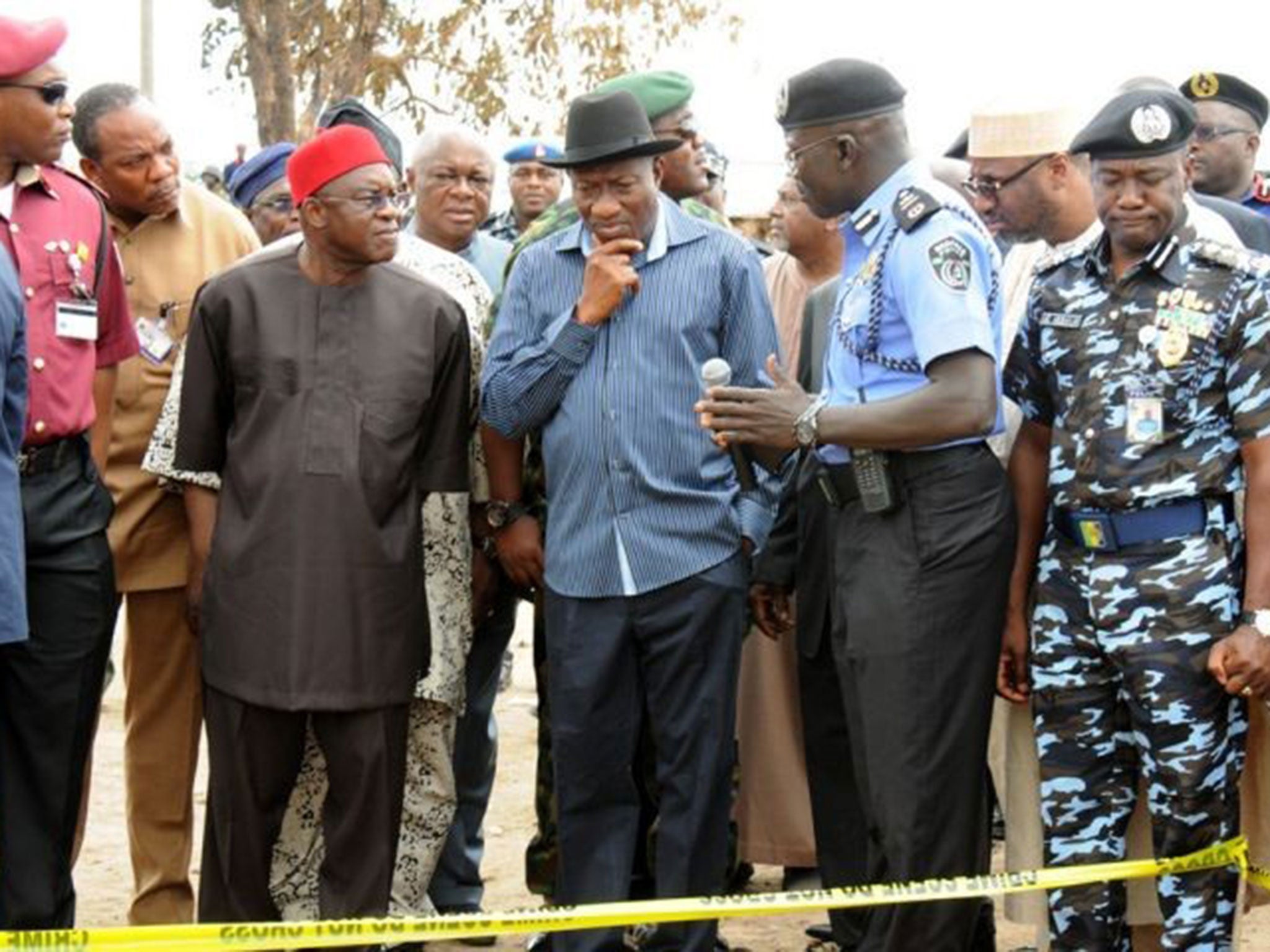Kidnappers of 100 Nigerian schoolgirls pretended to be soldiers, says witness
Islamic militants from Boko Haram group suspected of seizing students in anti-government raid

Suspected Muslim extremists have kidnapped about 100 girls from a school in northeastern Nigeria, less than a day after militants bombed a bus station and killed 75 people in the capital — a surge of violence that raised new doubts about the military's ability to contain an Islamic uprising.
Islamist rebels in Nigeria duped dozens of schoolgirls into thinking they were soldiers who had come to evacuate them before abducting more than 100 in their latest anti-government raid, one of the survivors said as reports emerged of another attack in the country’s north-east that left 20 dead.
Gunmen suspected to be members of the radical Boko Haram movement swooped on the town of Chibok in Borno state and its government secondary school for girls late on Monday, calling on students to leave their beds in its hostel.
The mass abduction of pupils aged between 15 and 18 has shocked Nigeria and showed how the five-year-old Boko Haram insurgency has brought lawlessness to swathes of the arid, poor North-east, killing hundreds of people in recent months.
It occurred on the same day that a bomb blast, also blamed on Boko Haram, killed 75 people on the edge of the capital, Abuja, stirring fears of violence spreading from the north of Africa’s leading oil producer and most populous nation. Today, gunmen attacked the village of Wala, in Gwoza district, and killed 20 people.
The unprecedented string of attacks has many questioning the role of politicians in the insurgency and the ability of the military to contain the Islamic uprising that has killed more than 1,500 people this year.
The Chibok students, who had returned to sit final-year exams at their school despite a state-wide closure of Borno’s educational centres because of recent Boko Haram attacks, initially obeyed the armed visitors, thinking they were Nigerian troops there to protect them. “When we saw these gunmen, we thought they were soldiers. They told all of us to come and walk to the gates, we followed their instructions,” said Godiya Isaiah, 18, who later managed to escape the abductors. But when the armed men started ransacking the school stores and set fire to the building, the terrified girls being herded at gunpoint into vehicles realised they were being kidnapped.
“We were crying,” Ms Isaiah said, recounting how she later jumped from a truck and ran away to hide in the bush. Other girls were packed into a bus and some pick-ups.
Inuwa Kubo, the Borno state education commissioner, said five other girls who also escaped told the same story. “They went into the bus unsuspecting,” he said. “They were lured into the vehicle because they were told the school was going to be attacked.”
The attackers also raided the nearby town of Chibok, ransacking shops and offices and killing several people. Boko Haram, which in the Hausa language broadly means “Western education is sinful”, has previously attacked schools as symbols of secular authority, killing pupils and teachers, as well as Christian churches and Nigerian state targets such as police, army and government offices.
Police and army patrols are still scouring the bush and hills around Chibok for the missing girls, believed to number at least 100. A military spokesman called the abductors terrorists.
Chibok is not far from a rugged area of forest, hills and caves where military officials say Boko Haram has camps near the border with neighbouring Cameroon. They have abducted girls in the past to be sex slaves for the fighters and to do camp work.
No one has claimed responsibility for the abduction or for the rush-hour bomb blast on Abuja’s outskirts, which put the capital on alert about three weeks before the city was due to host a high-profile World Economic Forum on Africa.
But President Goodluck Jonathan has pointed the finger of suspicion for the bombing at Boko Haram, bringing home to Nigerians in the centrally located capital that the Islamist insurrection ravaging poorer states hundreds of miles to the north-east could also strike closer to home.
With elections due in February, Mr Jonathan is under pressure to contain the Boko Haram insurgency and additional communal sectarian violence in northern Nigeria which badly tarnish the West African state’s newly acquired status as the largest economy on the continent.
Reuters
Subscribe to Independent Premium to bookmark this article
Want to bookmark your favourite articles and stories to read or reference later? Start your Independent Premium subscription today.

Join our commenting forum
Join thought-provoking conversations, follow other Independent readers and see their replies